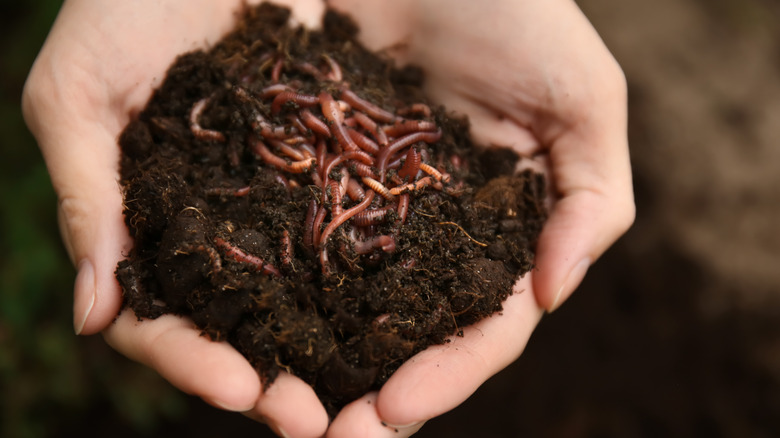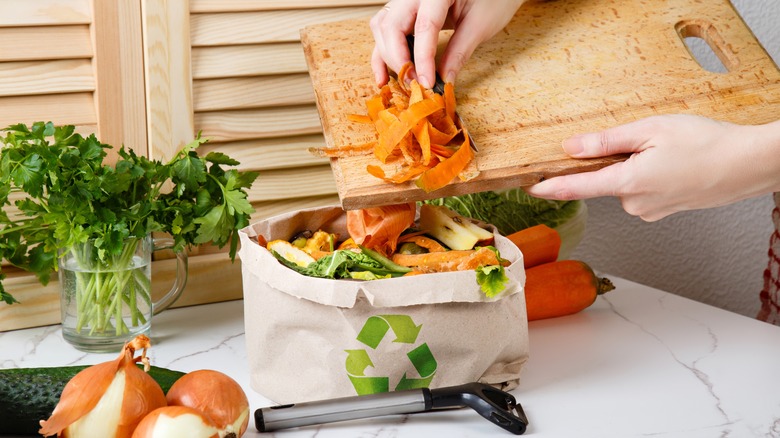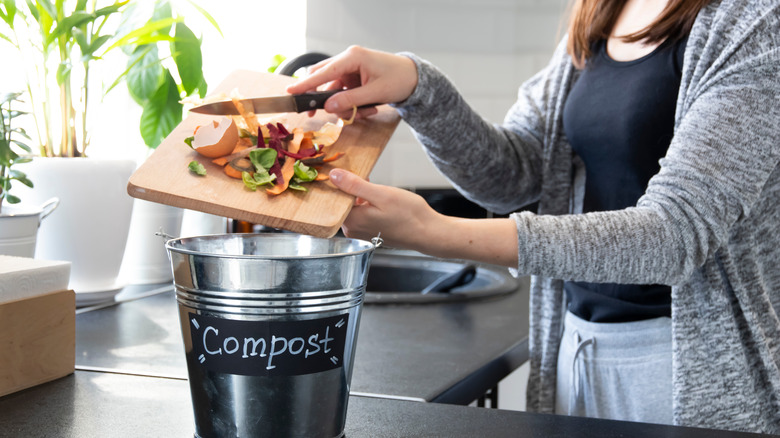Do You Need Worms To Compost?
While so much of what's going on in the world is beyond our control, there are small things we can all do in our own towns and neighborhoods that help offset some of the destruction that goes on all around us.
With climate change veering into disturbing proportions, we can all do our part by seeking out natural ways to exist in the world without adding more strain to the environment. We can start by conserving more, consuming less, and looking for alternative ways to keep carbon emissions down, especially when it comes to what we throw out in our homes.
On simple way to offset the looming landfills filled to the brim with unbiodegradable garbage is to compost at home. Eight percent of gas emissions stem from food waste (via NPR).
When garbage that doesn't break down naturally stays in landfills, the result is less oxygen in the water supply and more harmful gases in the atmosphere (via Sciencing).
In addition to helping the environment, you can do great things with compost, including creating a wonderful base for soil so you can grow your own food.
What you need to compost
When most people think of making a good healthy compost they think of worms but that might not necessarily be true. There are a few basic staples you need to make a good compost right in your own kitchen or backyard. According to the Environmental Protective Agency, you need to have mix of brown and green waste along with some water.
When you think of brown waste, consider twigs, cardboard, paper, dried leaves, and branches. Green waste can be pieces of fruits and vegetables that you cut off and don't eat, like a banana peel or top of a pineapple, as well as grass, houseplants, eggshells, nutshells, and coffee grounds (via SFGate).
A simple way to create compost, even in a small apartment, is to throw the remnants of food waste into a milk carton or a freezer bag and keep it in your fridge or freezer.
What do worms do for compost
There's no doubt about it, worms do wonderful things for compost. In fact, using worms is one of the tricks that will help you become a composting master. They consistently burrow around the food waste, which helps break up the food even further. Worms are also thought to prevent disease and kill bacteria in the waste pile and they aerate the compost as they move about (via Compost Magazine). Still, not everyone wants to deal with squirmy creatures, especially in their apartment.
The good news is you can absolutely compost without using worms. However, the process will take longer (via Happy Sprout). Without worms to help push aside and break down food debris, food scraps will take more time to decompose.
Composting without worms works best if you have a small household and don't consume a lot of food at home so you have less food waste. It also works well if you have a very large composting bag or bin so the food can be spread out and break down more easily.


